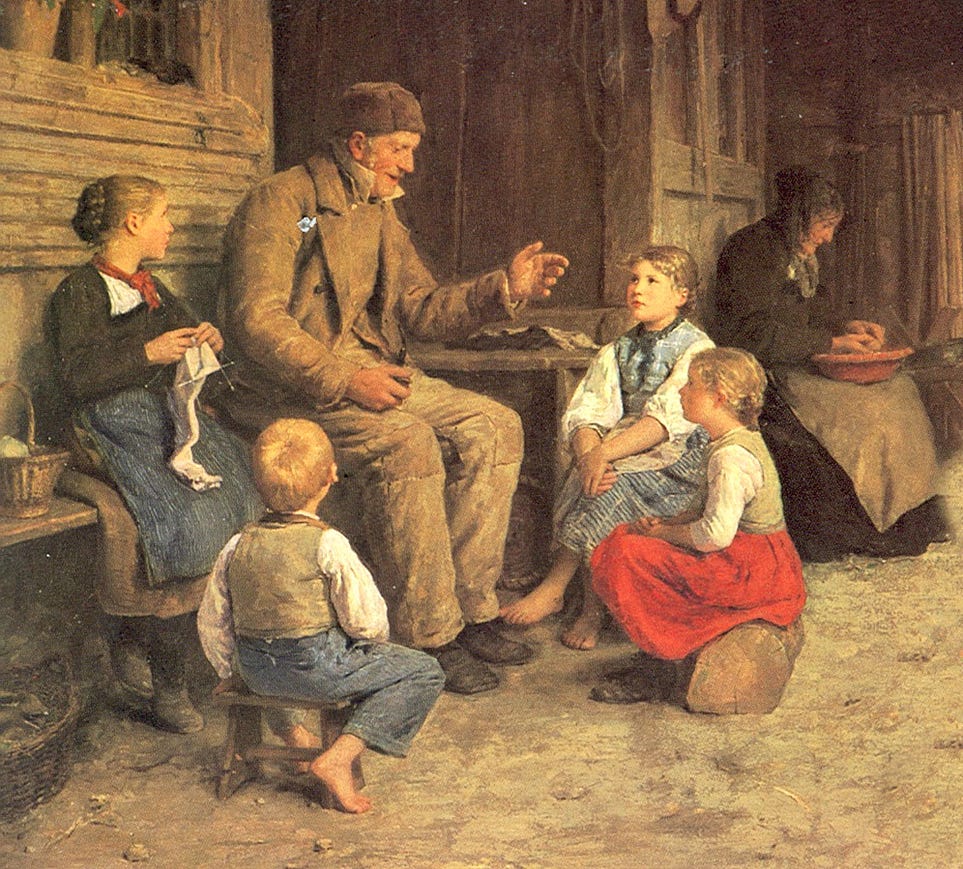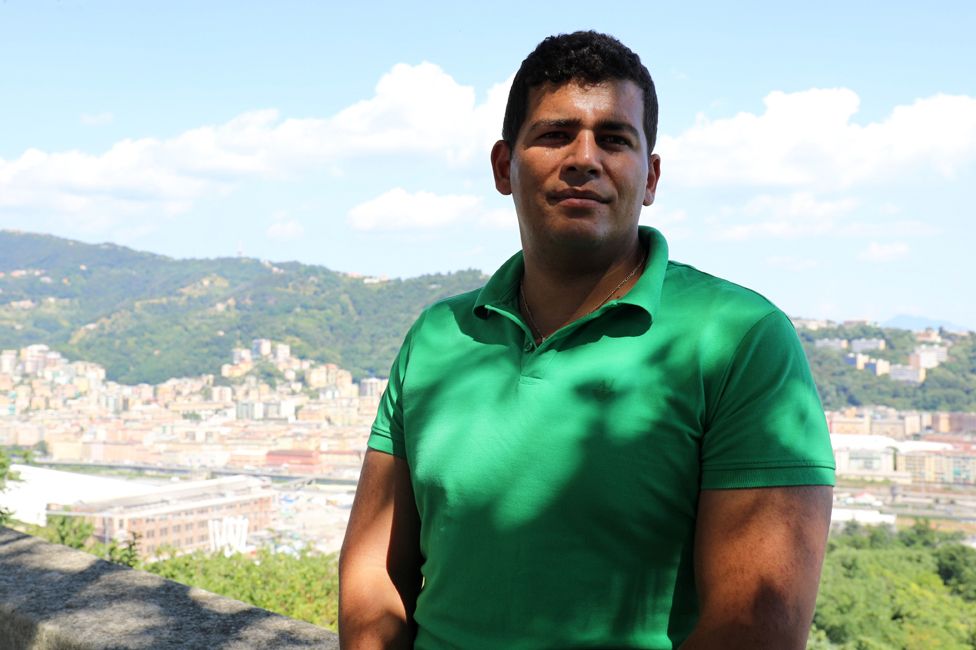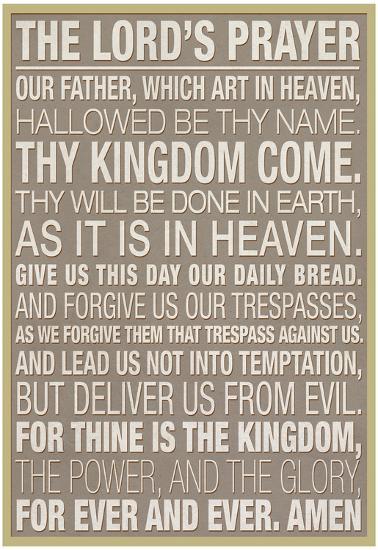One of things expected of us, as parish clergy, is us being available to our parishioners. In the 21st century church this is increasingly difficult to achieve, but hopefully, it remains a cornerstone of the way that Anglicans minister. It is worth noting that being available is not sitting around and waiting for the phone to ring or the doorbell to be pressed. Being available is as much about making ourselves available to others.
Making ourselves available can occur in many and varied ways. For me, in recent days, this has included taking the Sacrament of Holy Communion to the housebound. This is a joy and privilege that I discovered in my Deacon's year and has remained a vitally important part of the ministry I exercise.
Earlier this week, as I walked to my car parked outside one of our church buildings to make a Home Communion visit, I encountered a family. We got talking - they were staying in the area on holiday - but that day a much-loved family member's funeral was taking place in the north of Scotland. Their pre-arranged holiday meant that they couldn't attend, and so were delighted to discover the church building open.
They had already been inside to think, to remember and to pray. They hadn't discovered where they could light a candle in the Lady Chapel - a beacon of hope, love and light in the midst of their grief and a prayer to the God of Compassion in their sorrow.
I showed them where they could do this, and they lit and candle and prayed for them and those gathered at the funeral many miles away, and for the repose of the soul of their loved one. This gentle act reduced them to tears.
They were effusive in their thanks that I had just been there and able to pray with them, and that the building was open to hold time and space.
As we parted ways they assured me that they would come back if staying in the area. In so many ways that doesn't matter. What matters is that the church was available to them; a space in which they knew they could come and be and hold their loved one in the Love of the One who loves us all.
A Prog Vicar's Journal of: Sermons Theological thinking Church musings... and a near obsessive love of Progressive Rock, Metal, Jazz and a whole bunch of musical bewilderment!
Tuesday, August 20, 2019
Monday, August 19, 2019
The storyteller, faith and Emmanuel's brother: A Sermon on Hebrews 11:29-12:2
I knew someone once who is a traditional storyteller. I don’t some sort of glorified children’s entertainer. I mean someone who collects and retells the ancient stories of the people and communities and land that makes up these and other islands.
We got talking about why these stories remain important. Anyone who has heard these sorts of stories will know that they resonate deep within your soul. They meet us in a way that can surprise and delight us. He explained that the stories connect us, deeply, with one another. He said: as I retell a story centuries old, the person who told me stands behind me (not literally) with their arm outstretched and their hand on my shoulder, and the person who old them stands behind them with their hand on their shoulder, and the person who told them stands behind them with their hand on their shoulder and so on, right back to the person that the story is about.
When I first became a Christian in a Lancashire Low Church, I was taught nothing about the Saints of God. I later deduced that the Saints were Jesus’ disciples and others who became close to Him in life or a life of prayer, worship and service. But because they were enshrined forever in stained glass windows, as people to emulate in my own journey of faith, they were unobtainable and deeply removed from my own experiences of life and faith in suburban Preston. Often the writer of the letter to the Hebrews has been quoted and taught to offer a different vision.
The letter to the Hebrews is by an unknown author but was probably written to an early church community living in Jerusalem facing persecution from their fellow Jews for following the new Way of Jesus and it almost exclusively focusses on understanding who Jesus is as Messiah and His role as mediator between God and humanity.
‘... By faith …’ And so we continue straight on from last week’s section of the epistle. By faith such and such happened to so and so. By faith such and such happened to so and so. Bearing in mind these letters in New Testament were meant to be listened to, for me at least, it feels like the writer - if they were writing today - would be channelling Martin Luther King Jr or Barak Obama or another great orator of our day. It feels like they are reaching some sort of impassioned crescendo - and indeed they are!
We talk much of faith in the church but we often do so in one of two ways: faith is either a commodity that we are exhorted to have more of so that we might find the gap between those enshrined in stained glass windows and us is lessened. We hear Jesus - O ye of little faith… where your treasure is there your heart will be also… and in these and many other instances, faith is something that we should be seeking to accrue, saving in the heavenly bank so we can cash it in later.
Alternatively, the language of faith is used interchangeably with the language of belief and in that context, we are often then trying to defend a position of faith as being true. We have all been in conversations like this - how does your faith stack up against… insert this week's favourite knockdown offered by the ever noisier evangelical atheists around us. We are constantly being encouraged to have a confident faith - which to me sounds like being sent out armoured to the hilt with great arguments. Faith in that context is the ultimate trump card of propositional truth.
The writer of the letter to the Hebrews offers us another way. The phrase, ‘... by faith…’ comes nearly 20 times in chapter 11 and in every case the expression is used actively. By faith someone did something but this isn’t just in English. In the Greek that the letter is written in, the word for faith - pistis - is in the dative tense and is something that someone is a recipient of or an is an action done to them. In other words, faith for that very early Christian community was not something you believe to be true like some sort of equation; nor is it something that if you have enough of God will smile more favourably on you - faith is something that is done or you do; something you give and receive. Faith is something you live out.
A year ago, a motorway bridge outside Genoa collapsed plunging cars, lorries and buses to the ground killing 43 and injuring dozens. Henry Diaz was driving his brother Emmanuel to the airport to fly to Columbia to study. By the time Emmanuel reached his destination 140000 km away he heard of the bridge collapse and knew that something was wrong - his brother felt even further away. He later saw footage of his car being removed from the rubble. Henry was dead. Subsequent tests proved the bridge to have fatal flaws in it. Emmanuel has put his studies on hold to care for their mother and to attend the hearing into what happened to discover why what happened on that day happened.
The ‘great cloud of witnesses’ that the writer refers to, are the faithful saints and holy ones of faith gone before us. They are not distant and aloof, enshrined in windows or silenced in plaster busts. The early church that the author writes to was small in number and looked constantly for encouragement as they sought to live faith. Much like the traditional storyteller in a long line of story, or Emmmanuel Diaz in the courtroom in Genoa, they watch the church - the people, you and me - and they notice when faith is lived out. They rejoice when one of us prays for healing for a sick friend. They smile with joy when one of us visits someone who is bereaved. They sing for joy when one of us sings God’s praises. They cheer when one of us stands up for justice. It warms their hearts when one of us supports the needs of a lonely and isolated neighbour. They notice. They are witnesses to what we do and how we live.
What is the writer of the letter to Hebrews asking of us: Simple. Don’t just accumulate faith for some future point. Don’t just learn about faith to win an argument. Live faith. Look to Jesus. Do what He taught - love, forgive, pray for, feed, clothe, seek justice and mercy, not worrying what others think or dwelling on when we fail - live it out - make the cloud of witnesses go nuts.
Sunday, August 04, 2019
Surrender our life; live His life - a sermon on Colossians 3:1-11
At a point not far from El Paso, the architect Ronald Rael has installed something beautiful. As a way of reminding people both sides of the US/Mexican border that that which unites is far greater than that which divides, several pink seesaws have been installed between the fence. He said that the event was about bringing joy and togetherness at a place that signifies division, and a reminder to all as they play, that actions on one side have a direct consequence on the other.
These seesaws are a sign of hope and unity, that the writer of the letter to the Colossians refers at the end of our Epistle this morning. It is a stirring vision - there is no longer Greek and Jew, circumcised and uncircumcised, barbarian and Scythian, slave and free, and I don’t believe that this is intended as an exhaustive list! - all of the societal, religious and cultural barriers that we continue to maintain that divide - are broken down by and in Christ.
The letter to the Colossians is written to one of the earliest Christian communities. It’s hard to date but it was probably written between 30-60 years after the resurrection. In the section prior to what we hear this morning, the church are being reminded that if they want to have a deep and life-transforming faith, they need to continue to remain rooted in Christ. For a plant to grow it needs to put its roots down into good well-watered soil, so too for the Colossian church. The writer reminds them that by following Christ they have been freed from whatever they believed, or however they behaved, before hearing of the Way of Jesus the Carpenter and seeking to live that out. So because they are free - they shouldn’t feel compelled by other teachers to be bound again by other rules and regulations in regard to their new faith. In other words - the writer of the letter doesn’t want them to slip back into an expression of faith that says ‘if I do this or that, or avoid this or that, I will please God.’ The writer says ‘NO!’ - they have been living the new life Christ promised already - focus on that.
‘... So if you have been raised with Christ… [s]et your minds on things that are above, not on things that are on earth…’
The remarkable sculpture, the Knife Angel, has been touring the UK since 2018. The 27 foot tall sculpture made with over 100,000 knives is an artistic response to the ‘surrender a knife; save a life’ campaign run by the police in 2014. The angel looms large reminding us that the status quo regarding knife crime and violence in our communities must not continue and something new must be forged.
The writer of the letter to the Colossians, contrary to what the opening verses sound like they are saying, is encouraging the church to continue to live in the now, the new life forged for us all by Christ. They are not asking their hearers to step out of the world and focus their endeavours on things that are above or otherworldly, thus ignoring life around us. Rather as Christians, as we live Jesus’ life in us and look to Him as our raised and ascended Lord, so we should allow the life and values forged from ‘above’, of heaven, to permeate our daily living. In other words - we need to continue to allow the teaching of Jesus risen and ascended to guide us. Living this way should mean that the way we act and react should be transformed.
Thus, the things that should be put to death (on the cross of Christ) and got rid of are actions and individual character traits that will ultimately harm us and those around us. They are listed by the writer as examples of what someone who’s eyes are not focussed on Christ, who’s life is not being oriented His way, might do or think. But if we don’t read this passage through the lenses of the Old Testament we might miss the hint that this renewal, that we who seek to follow Christ are invited to consciously put on like a coat, renews us in the relationship that God wanted to have with people as told in story form in the book of Genesis. Similarly if we don’t read this passage through the lens of empire and nation-building we might miss the hint that the renewed relationship that we called into in Christ doesn’t so much do away with our cultural, religious and ethnic differences, but that all are welcomed into that relationship, no one is excluded, and Christ Himself as we look to Him, fills all of us with the life of heaven.
Like the Colossian church, if we are seeking to live as our risen and ascended Lord has shown us, what actions and thoughts should characterise us individually and corporately? The writer of the letter is suggesting that in the same way that the clothes we chose to wear to church this morning were carefully chosen because we like the colour/fabric/the fit/the way they look/the ways they make us feel/or even say something about us - so, as we continue to put on the renewed life of Christ - our inner thoughts and outward actions should point to the One whose love is transforming our hearts.
Like the Colossian church, if we are seeking to live as our risen and ascended Lord has shown us, what actions and thoughts should characterise us individually and corporately? The writer of the letter is suggesting that in the same way that the clothes we chose to wear to church this morning were carefully chosen because we like the colour/fabric/the fit/the way they look/the ways they make us feel/or even say something about us - so, as we continue to put on the renewed life of Christ - our inner thoughts and outward actions should point to the One whose love is transforming our hearts.
We can consciously put on that renewed life by rooting ourselves in His life and I'd like to suggest 3 ways:
Firstly, I’d like to encourage each of you to take time each day to read a little scripture. Remind yourself of the story of Christ in the Gospel. Start with Mark’s account - it’s short and has less tricky theology. Read a portion each day. Ponder it. Try to live what Jesus teaches.
Secondly, pray. Prayer places us intentionally in God’s presence. Many of us find prayer difficult, so keep the prayer simple - the Lord’s Prayer is a good place to start. Say it every day.
Thirdly, come to church, not to the building but come and be part of the community who are trying to do and live this - come and encourage one another - and be renewed by the One who loves us as we meet Him veiled in the bread and wine of the Eucharist.
Our lives should visibly reveal Jesus renewing us; breaking down the barriers that we maintain between us. Not so much ‘surrender a knife; save a life’ but ‘surrender our life; live His life.’
Subscribe to:
Posts (Atom)











